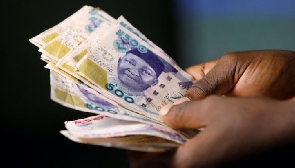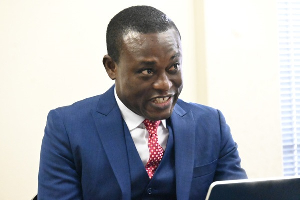The Nigerian central bank’s move to adjust the value of the naira represents what is likely the first instalment in finding a sustainable level for the currency.
The central bank in March weakened the parallel market rate to 380 naira to the US dollar from 365, with the central bank calling the move an “adjustment” rather than a devaluation. But the market is clearly indicating a need for a fall to at least 400 to 420 naira to the dollar, says Yann Alix, a partner at Ashurst in London.
“There is a significant locking up” of the dollar-naira market that will last until those holding dollars see “a closing of the gap with the perceived true value of the local currency,” he says.
The rate of 380 does not appear to have made “any material impact on the severe liquidity issues faced in Nigeria for entities requiring dollars”, Alix says.
“No one is going to change dollars for any but essential purposes whilst there is a clear need and perceived inevitability for a further devaluation by the central bank in the coming days or weeks.”
Nigeria’s measures to date “are not going to be sufficient and there is a concern that the government needs to be more responsive to the combined issues of crude-oil price fall and COVID-19.”
Even assuming the Nigerian authorities are willing to take more decisive action, there is also a question over the level of financial resources available. “The economy has been stagnant since the earlier price fall in 2016 and there are not huge amounts of foreign reserves that can be called upon,” adds Alix.
Similarly, he says, pricing for any sovereign debt issuance in the current environment could be prohibitive, meaning that the International Monetary Fund or other non-public borrowings would be the preferred source.
Damage limitation
The coronavirus lockdown in Nigeria might provide a temporary reprieve, as demand for foreign currency will be reduced as businesses close, says Ebenezer Seun, a private-wealth executive at Barino Investments in Lagos.
But this will only be temporary: “Reality will come to the fore as business resumes and both the fiscal and monetary situation makes the present level impossible to maintain,” he says.
The increase in coronavirus cases and accompanying lockdowns in major African economies means that a recession is “all but inevitable,” Seun says.
“The most that governments and central banks can do is to cushion the damage as much as they can.”
Inadequate tools
The current crisis in African markets stems “first and foremost, from an erosion of confidence in policy-makers’ abilities to deal aggressively with a deterioration in public health and safety that prevents regular day-to-day consumption and production activities,” says Harry G. Broadman, a former senior US trade negotiator and a former chief of staff of the US president’s Council of Economic Advisers.
Central bank rate reductions and exchange rate devaluations “will likely be only marginally helpful” in ending the crisis, says Broadman, who now chairs the emerging markets practice at Berkeley Research in Washington.
“They are poor substitutes for concrete actions of expansionary fiscal policy, liberalisation of trade policy – such as reducing export bans and import tariffs – and monetary policy implemented through quantitative easing.”
“There’s a need for commensurate intervention from the fiscal policy-makers,” which should be mostly targeted at small and medium-sized companies,” says Moses Ojo, chief economist at PanAfrican Capital Holdings in Lagos.
“These measures might be in terms of reduction in tax rates and other forms of forbearance.”
Ojo expects that Nigeria will find it hard to defend the naira’s level in the medium to long term.
The bottom line: In Nigeria and beyond, central banks and governments need innovative responses as the standard toolbox is not working in the current crisis.
Africa Business News of Sunday, 5 April 2020
Source: theafricareport.com













